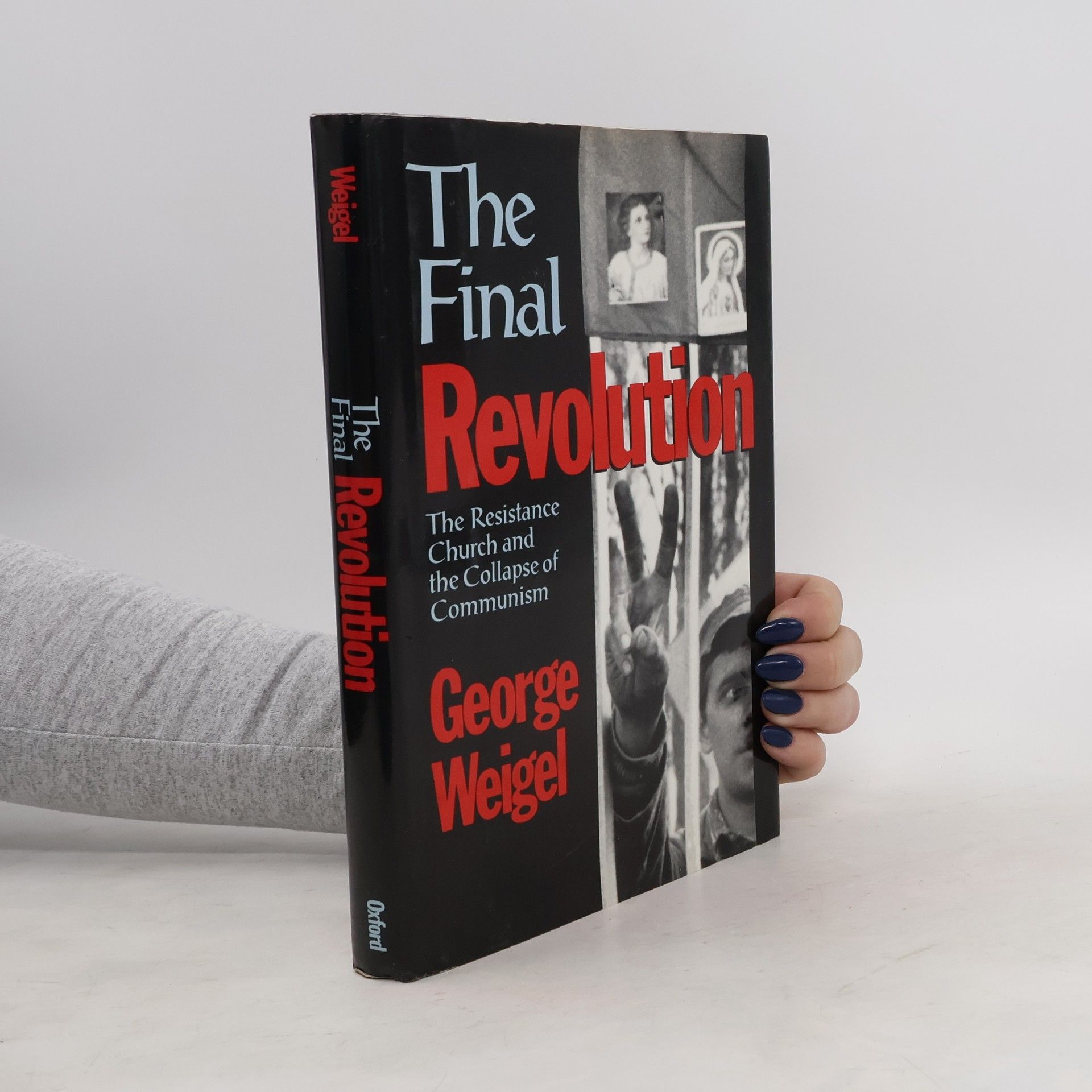George Weigel Knihy
Tento americký autor a politický aktivista sa zameriava primárne na etiku a verejnú politiku, často s dôrazom na vzťah medzi náboženstvom a liberálnou demokraciou. Jeho dielo skúma výzvy slobodnej spoločnosti v kontexte kapitalizmu a zdôrazňuje morálny rozmer politického života. Pôsobí ako významný intelektuál, ktorý sa snaží prepojiť teologické myslenie s praktickými otázkami súčasného sveta. Jeho analýzy sú cenné pre pochopenie hlbších filozofických základov politických a spoločenských systémov.

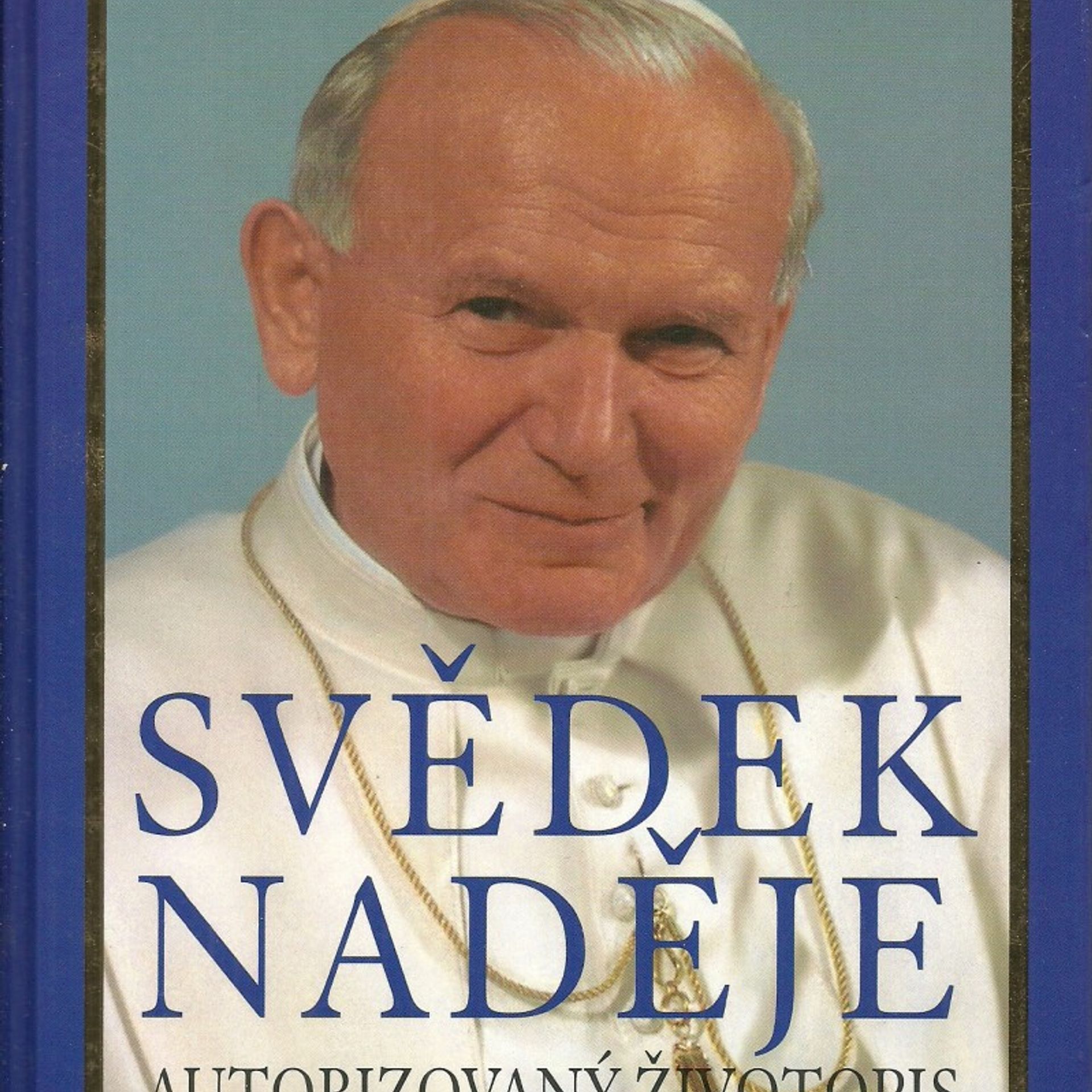
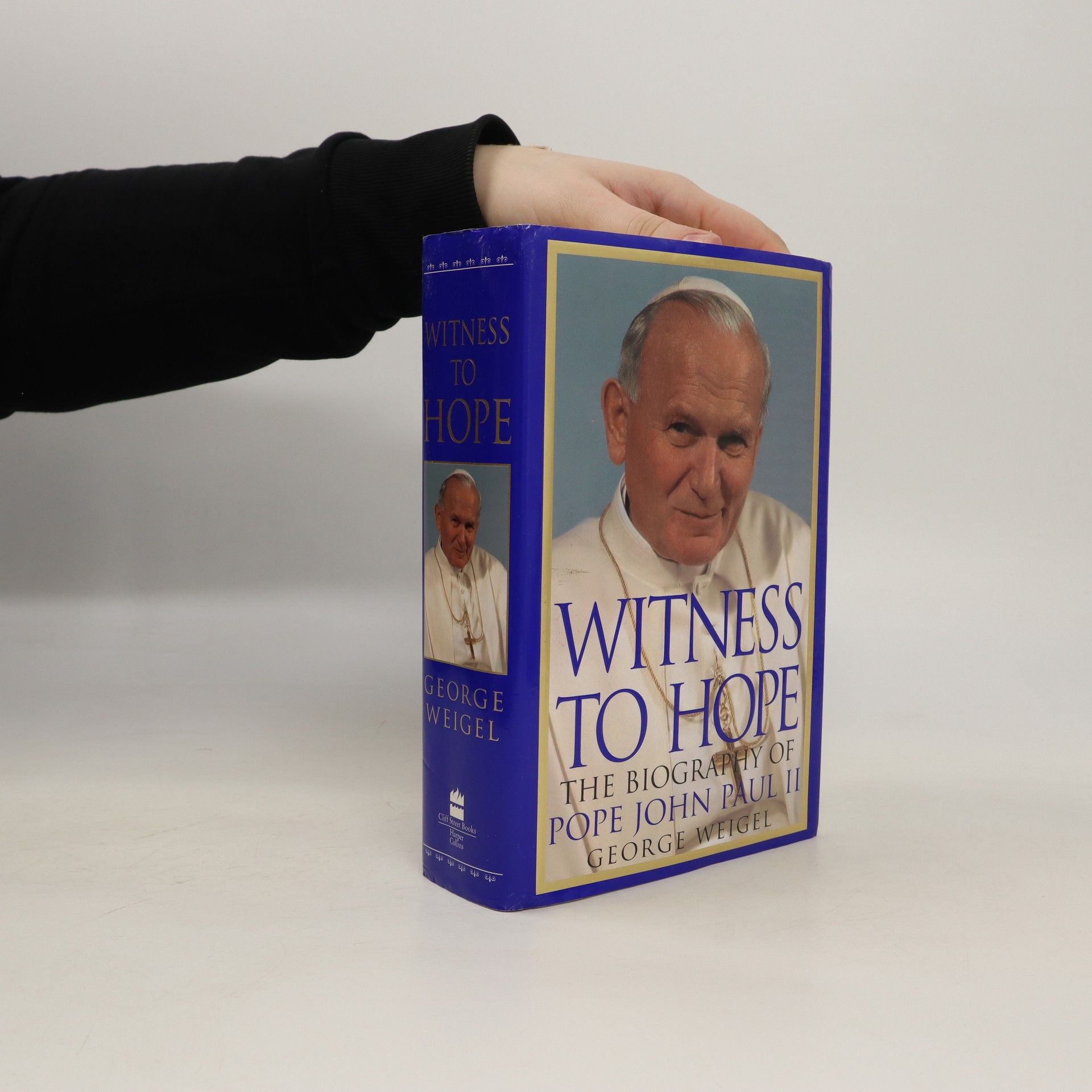
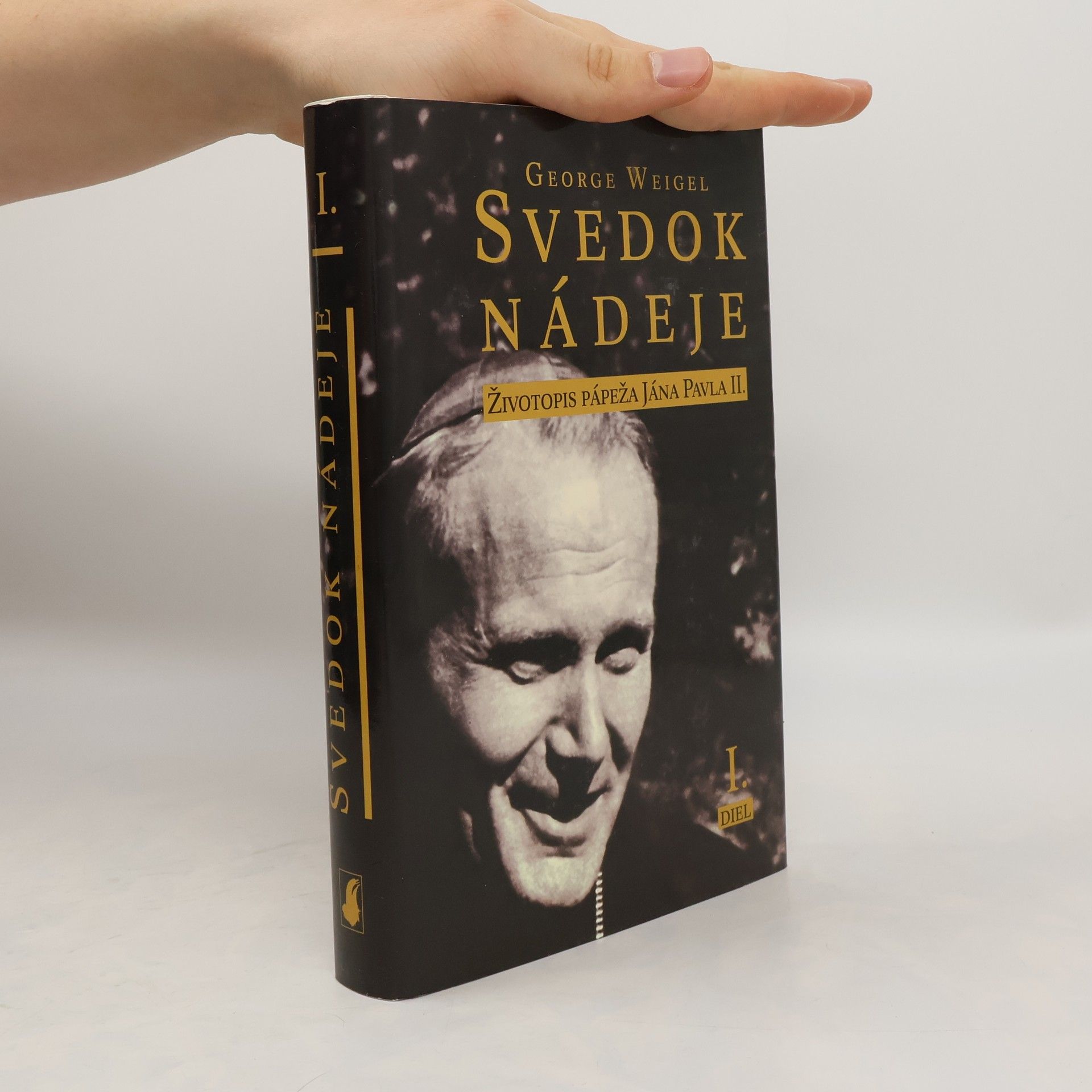
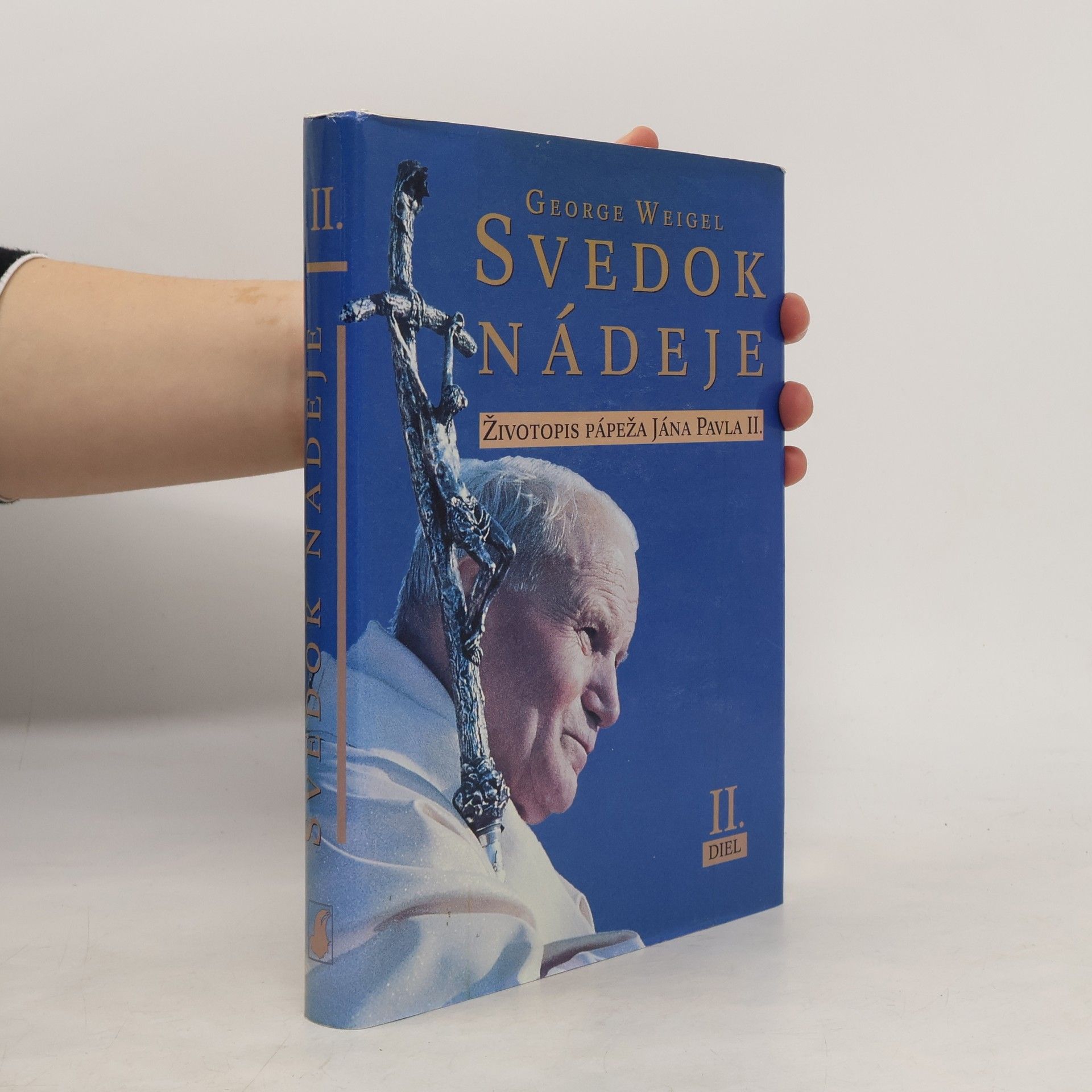


Svedok nádeje: Životopis pápeža Jána Pavla II. III. diel
- 340 stránok
- 12 hodin čítania
Literárne vyzreté objavovanie života človeka, ktorý dvadsať rokov zásadne poznačoval osudy Cirkvi a sveta, dával smer končiacemu sa storočiu a vstupný tón nádeje novému tisícročiu.
Svedok nádeje: Životopis pápeža Jána Pavla II. II. diel
- 292 stránok
- 11 hodin čítania
Svedok nádeje: Životopis pápeža Jána Pavla II. I. diel
- 352 stránok
- 13 hodin čítania
The Definitive Biography of Pope John Paul II Witness to Hope is the authoritative biography of one of the singular figures -- some might argue the singular figure -- of our time. With unprecedented cooperation from John Paul II and the people who knew and worked with him throughout his life, George Weigel offers a groundbreaking portrait of the Pope as a man, a thinker, and a leader whose religious convictions defined a new approach to world politics -- and changed the course of history. As even his critics concede, John Paul II occupied a unique place on the world stage and put down intellectual markers that no one could ignore or avoid as humanity entered a new millennium fraught with possibility and danger. The Pope was a man of prodigious energy who played a crucial yet insufficiently explored role in some of the most momentous events of our time, including the collapse of European communism, the quest for peace in the Middle East, and the democratic transformation of Latin America. This updated edition of Witness to Hope explains how this "man from a far country" did all of that, and much more -- and what both his accomplishments and the unfinished business of his pontificate mean for the future of the Church and the world.
Letters to a Young Catholic
- 368 stránok
- 13 hodin čítania
For the faithful, the doubtful, and the searchers of every age, these letters convey the power of the Catholic faith that is at once personal and universal, timely and eternal. In this remarkable exploration of the Catholic world, prominent Catholic author and papal biographer George Weigel offers a luminous collection of letters to young Catholics, not-so-young Catholics, and curious souls who wonder what it means to be Catholic today. Weigel takes readers on an epistolary tour of Catholic landmarks -- from Chartres Cathedral to St. Mary's Church in Greenville, South Carolina; from the Holy Sepulcher in Jerusalem to G.K. Chesterton's favorite pub in Oxford; and from the grave of a modern martyr in Warsaw to the Sistine Chapel. Weaving together insights from history, literature, theology, and music, Weigel illuminates the beliefs that give Catholicism its distinctive texture and explores the theological importance of grace, prayer, vocation, sin and forgiveness, suffering, and -- most importantly -- love. To a world that sometimes seems closed and claustrophobic, he suggests, Christian humanism offers a world with windows and doors -- and a skylight.
The collapse of communism in central and eastern Europe in 1989 was a remarkable event in a century marked by the unexpected. How did people, divided for generations by an Iron Curtain, suddenly unite atop the Berlin Wall? Why did those who seemed resigned to their fate take control of their futures? While some analysts attribute the Revolution to economic factors, George Weigel argues that the motivations were deeper. People do not risk their lives merely for material gains; a profound change in consciousness was necessary. Weigel posits that this "revolution of conscience" was crucial to the political upheaval of 1989. He explores the Catholic Church's influence on this moral transformation, drawing on interviews with key figures from human rights and resistance movements. This provides insight into the spirit of the Revolution and the motivations of its leaders. Weigel highlights Pope John Paul II's role in challenging communism's "culture of the lie," and discusses the Church's potential future in supporting democracy in former Warsaw Pact nations. Ultimately, Weigel asserts that this "final revolution" signifies an ongoing human quest for true freedom that fulfills the deepest yearnings of the heart, reshaping the political landscape of the twentieth century.
The End and the Beginning
Pope John Paul II -- The Victory of Freedom, the Last Years, the Legacy
- 590 stránok
- 21 hodin čítania
In the spring of 2005, as the world watched the apostolic palace in Rome, the pontificate of Pope John Paul II was recognized as one of the most significant in Christian history. Esteemed author and NBC Vatican analyst George Weigel presents a long-awaited sequel to his international bestseller, offering a dramatic account of the Pope’s battle against communism, enriched by newly disclosed information. This narrative concludes Weigel’s comprehensive portrayal of a figure who profoundly influenced the Catholic Church and world history. Elected pope in 1978, Karol Wojtyła rapidly sparked a revolution of conscience in Poland, ultimately contributing to the fall of European communism and the Soviet Union. However, few were aware of the extensive, covert operations waged against him by the KGB, Polish Secret Police, and East German Stasi. With unprecedented access to Soviet-era documents, Weigel details John Paul’s fight against these oppressive forces. Additionally, he explores the Pope’s challenging final years, marked by illness and revelations of corruption within the Church. Weigel’s insightful biography culminates in a passionate assessment of a man whose life exemplified hope and commitment to Christian ideals.
Not Forgotten: Elegies For, and Reminiscences Of, a Diverse Cast of Characters, Most of Them Admirable
- 215 stránok
- 8 hodin čítania
The collection features essays originally published across various media, including newspapers and magazines, showcasing George Weigel's insights. Many pieces stem from his weekly column, The Catholic Difference, reflecting on themes of faith, culture, and contemporary issues. This compilation offers readers a thoughtful exploration of Catholic thought and its relevance in today's world.

